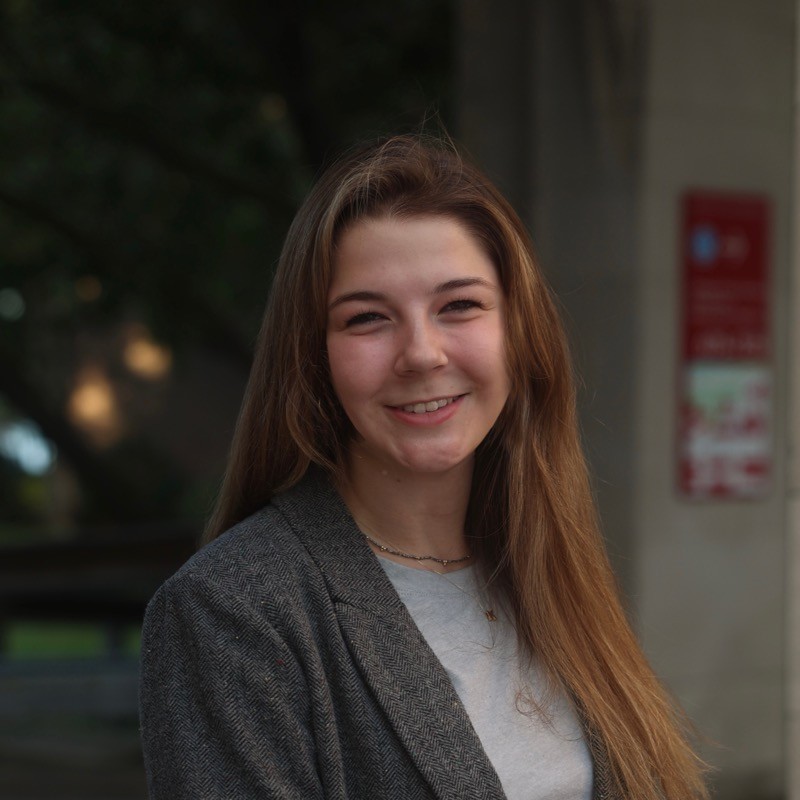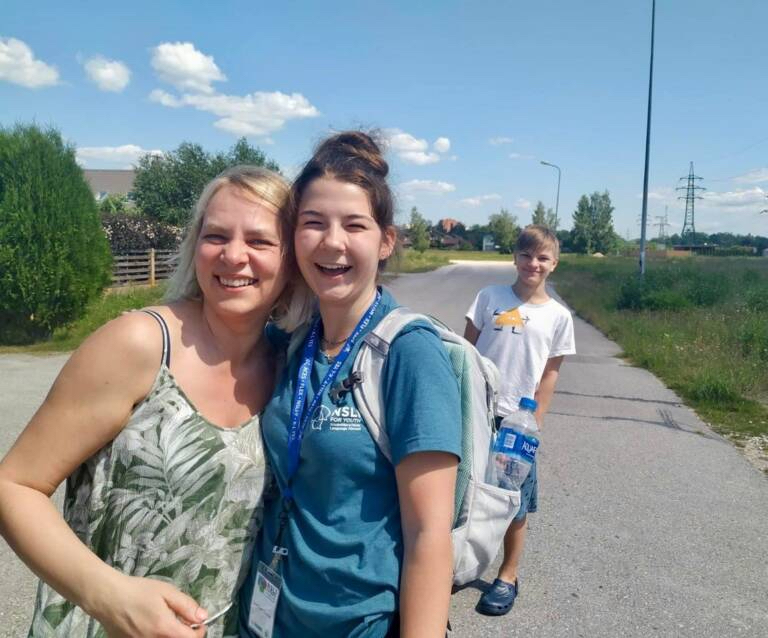Kathleen Rouse participated in the 2022 Summer Russian program in Latvia. Kathleen is currently studying International Relations at Boston University.
Russian
Alumni Spotlight: Kathleen Rouse

As the daughter of a U.S. naval aviator and Cold War veteran, Kathleen grew up with countless stories surrounding U.S.-Russian relations. While following her passion for diplomacy and national security, Kathleen’s pursuit led her to NSLI-Y. The opportunity to communicate effectively with Russian-speaking countries through intensive language immersion was a great step toward her dream career.
Kathleen is very grateful for the close bond she formed with her host mother who “made Riga feel like a home away from home.” Together, they cooked cottage cheese pancakes, flipped through her host mother’s family albums, went rock climbing, and more. In her spare time, Kathleen would often explore Riga and play beach football after class. She cherishes these moments and shares, “It feels like we packed a lifetime of memories into those six weeks.”
When reflecting on her NSLI-Y experience, Kathleen notes how living several hundred miles from the Russian border after the invasion of Ukraine solidified her goal of mastering the Russian language to help combat potential security threats. She returned from NSLI-Y with her eyes set on opportunities that incorporated the skills and interests she developed while abroad. Kathleen now majors in International Relations with concentrations in Europe and Foreign Policy, and minors in Russian at Boston University. She is the current Europe Senior Editor for the International Relations Review at her university. Kathleen describes the firsthand experiences she gained from NSLI-Y and a semester abroad in Spain as significant in deepening her understanding of cross-cultural collaboration and the intricacies of global affairs.
Since then, Kathleen has completed internships with the Department of State, Department of Defense, and the U.S. Nuclear Regulatory Commission. She also served as a National Security Fellow for Girl Security. When she worked as a research intern for the Department of Defense’s National War College this past summer, Kathleen investigated how transatlantic defense relationships will be affected by AI usage in detecting spy satellites in space. This rewarding opportunity led Kathleen to conduct independent research into U.S. missile defense policy and its evolution between 1965 and 1972.
Kathleen looks forward to pursuing a career in public service. She hopes to either work as a civilian or military service member to help bolster U.S. defense efforts. With interests in space-based military technologies, counterterrorism, and nuclear politics, she is eager to combine her passions and cultivate more inclusive national security communities going forward. She is thankful for her mentors for supporting her professional pursuits, describing how amazed she was by the generosity and openness of experts in the field. Kathleen shares advice for others who may not feel represented in the current national security landscape, “Don’t be afraid to reach out to those who have been in your shoes… It never hurts to ask for help, and the worst thing they can say is no!”

 U.S. Department of State
U.S. Department of State
